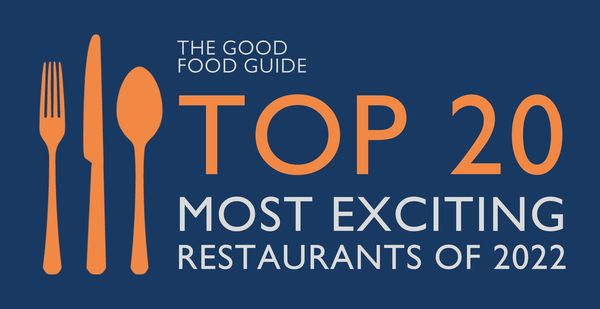Chef and author Maria Bradford is to open her debut restaurant, Shwen Shwen by Maria Bradford in Sevenoaks, Kent, on Friday 6th June. Food writer Hilary Armstrong interviewed her for The Good Food Guide's sister publication CODE Hospitality to find out all about her new opening.
Born in Freetown, Sierra Leone, Bradford learned to cook at the age of nine alongside her mother and grandmother. She moved to Kent in her teens. Having started out in accountancy, Bradford switched career path, founding Shwen Shwen (the name comes from the Krio word for ‘fancy’), her catering company, supper club and online store in 2017. Her first cookbook Sweet Salone: Recipes from the Heart of Sierra Leone came out in 2023; and in 2025, Bradford served as a judge on the Fortnum & Mason Food & Drink Awards.
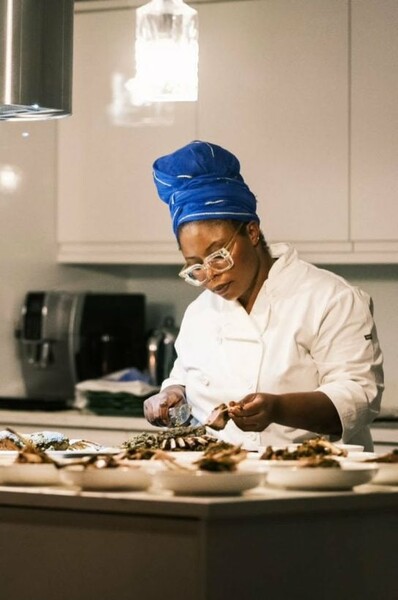
Congratulations on your first restaurant. What can you tell us about it?
It will be called Shwen Shwen by Maria Bradford. It will have my full name on it! My business has always been Shwen Shwen by Maria but I’ve decided to put my entire surname on it because I want people to get to know me. Sevenoaks is such a small community, I want when people to come here and say, 'I'm here to see Maria' or 'I’m here to eat at Maria’s place'. The concept of it…I really am a strong believer in fusion [cooking]. I do like traditional [cooking] but I’m also quite conscious that we need, as African chefs, to allow creativity within our ingredients, so we will be doing West African fusion, as well as traditional Sierra Leonean.
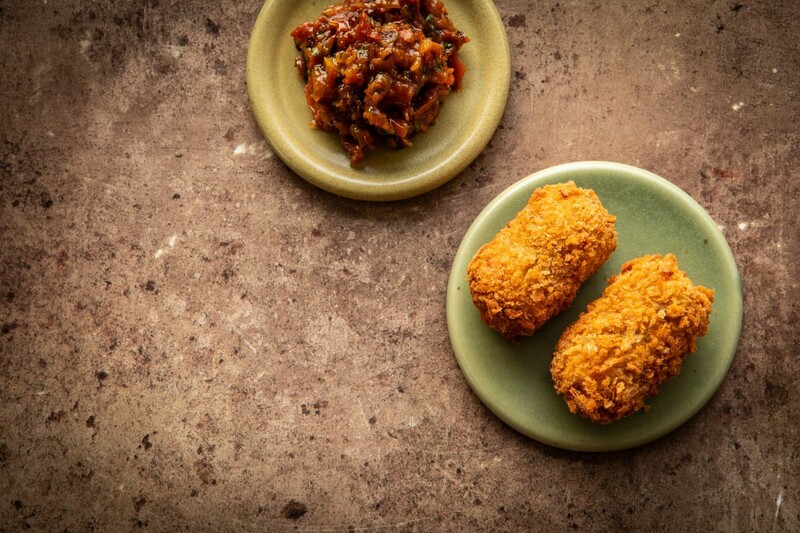
Sierra Leonean food won’t be familiar to some of your guests. What can they expect?
They can expect ingredients that they won’t normally find. They can expect ingredients like moringa [the powdered leaves of the drumstick tree], fonio [an ancient grain]; egusi [melon seed], peanuts…I know some people are allergic to peanuts so we will try and make alternatives, but we love our nuts in Sierra Leone. One of the dishes I’ll have on — I absolutely love it; reminds me of Sierra Leone and West Africa in general — is groundnut soup. We’ll be doing short rib, slow-cooked in peanut butter, coconut milk, and some West African spices, and we will serve it with fonio, the traditional West African grain we eat in Sierra Leone with groundnut stew. We will have street food like morkor [plantain fritters] on the bar snacks. We will have slow-cooked lamb belly that will be cooked with tomato and palm oil from West Africa because I wanted to use this opportunity to have a conversation about palm oil. I really believe that we need to be able to differentiate between the palm oil that’s coming from West Africa and the palm oil that’s damaging the planet. You can’t really tell West Africans not to eat their palm oil!
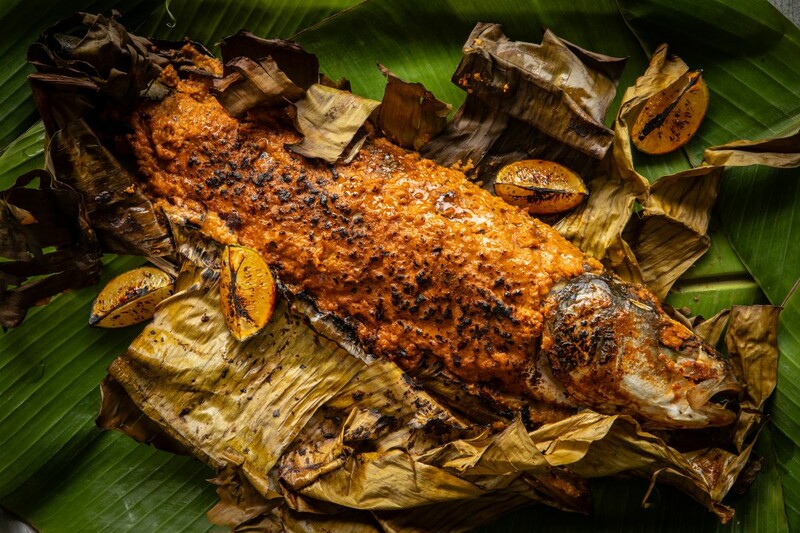
How did you learn to cook?
I was taught to cook by my mum and my grandmother in Sierra Leone. I went to Leiths [for a 10-week course] as a confidence booster for myself and to learn some of the science that I didn’t know but I learned to cook in Sierra Leone.
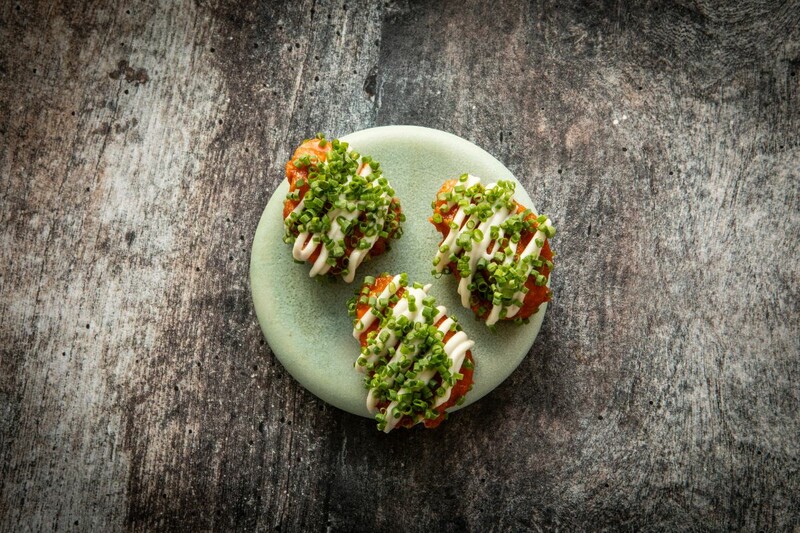
What is the design of the restaurant like?
It’s going to be colourful, a very warm environment in colours that are quite reflective of Sierra Leone, of the mud houses, and the vibrant colours that you’ll find in our fabrics and on the streets. Country cloth [a traditional woven textile] is such a big thing in Sierra Leone; we’ve taken inspiration from that, and we’ll have wallpaper of Banana Island, one of my favourite islands, in the bathroom corridor — it’s like a Bounty advert basically! The soft furnishings, the lighting, the fabric on the banquettes, the wallpaper, are all from Dar Leone [an Islington-based design studio founded by Sierra Leonean-American Isatu Funna]. It really represents Sierra Leone and showcases creativity at a really, really high end. We also have a beautiful courtyard that we’re going to call Cotton Tree Courtyard. It was one of the first things that attracted me to the property. Cotton Tree stood in [Freetown] in Sierra Leone for over 400 years; we lost it to some heavy weather. The moment I saw the beautiful tree [a protected mature red maple] in the courtyard, it reminded me of Cotton Tree. I want it to be here forever. I want people to sit underneath it. It’s just kind of full circle.
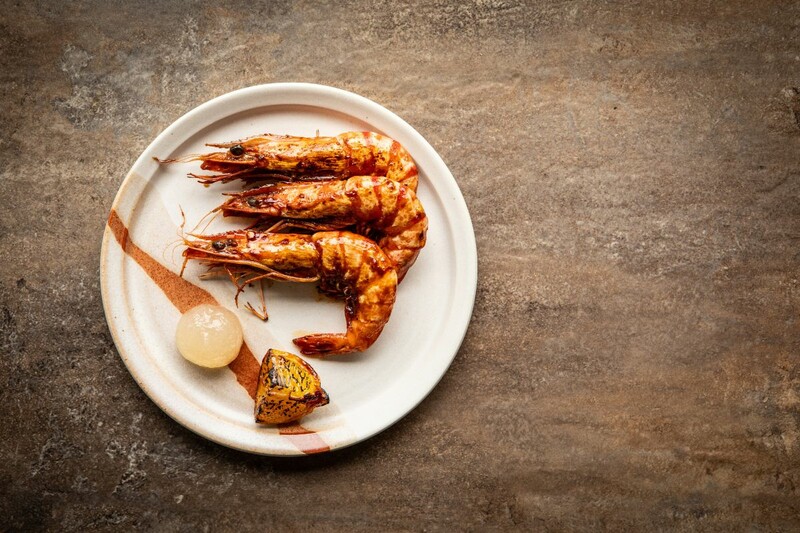
What do you want to achieve at the restaurant? What’s the idea behind it?
Changing perception, absolutely one hundred percent. I have answered so many questions about spice — is it going to be hot? What sort of meat are you going to serve? It shows a huge lack of understanding of what West African food is, never mind Sierra Leonean. So it’s changing that perception and saying we do eat spices but that’s not the key ingredient; there are West African spices we’ll be using — grains of paradise, grains of Selim, we’ll be making our kankankan spice in-house — we’ll be showcasing those and telling the story of Sierra Leone and West Africa in general with the ingredients. I really want the restaurant to be a West African restaurant; it’s not stuffy and fussy. In West African homes, a really really warm welcome is very important. I want people to feel at home; I want them to sit until we say 'Right, that’s it, can you go now please, because we need to turn the table around!' I want people to have fun. I want them to enjoy really good things that are coming out of the continent like South African wine, tea from Malawi, coffee from Kenya.
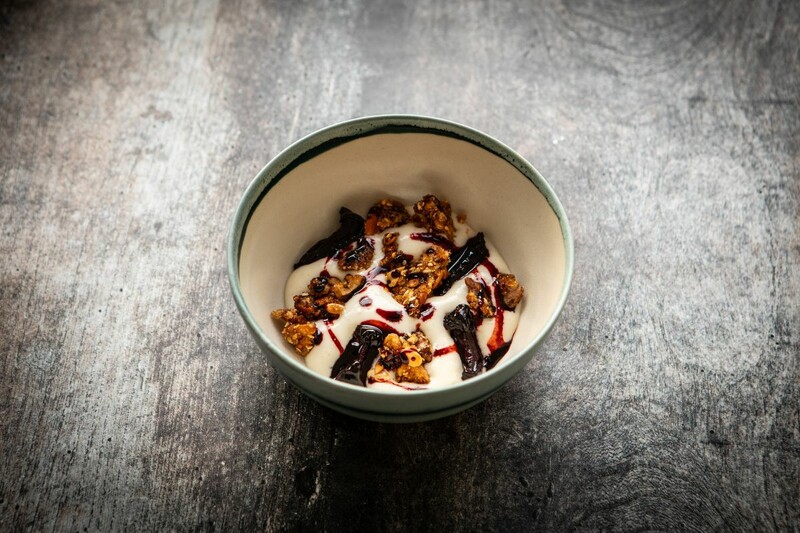
Who or what inspired you to open your own place?
I will say, I have got a fantastic community of friends and family, that’s one. And at the back of it all has been the Sierra Leonean community in the UK. The private dining that I used to do, these people really kept me busy and kept challenging me to challenge their palates as well. My name doesn’t really say I’m from Sierra Leone and when they realise I am and see what I’m doing…the pride! That pride absolutely pushes me. And my husband, he’s been amazing, because he always dreams five, six steps ahead of me. In his head he had a restaurant ten years ago that I was running.
Every obstacle or triumph I’ve met, it pushes me and forces me to run faster and do it better. I just feel like why not now? This is 2025. It’s so hard. I absolutely get that. I’m not playing that down at all. I know this is going to be hard. On top of that, everybody keeps saying 'Sevenoaks, Sevenoaks'. But I thought why not Sevenoaks? There’s been a lot of curiosity. I get ten, fifteen people coming in here daily to ask questions. It’s that curiosity we want.
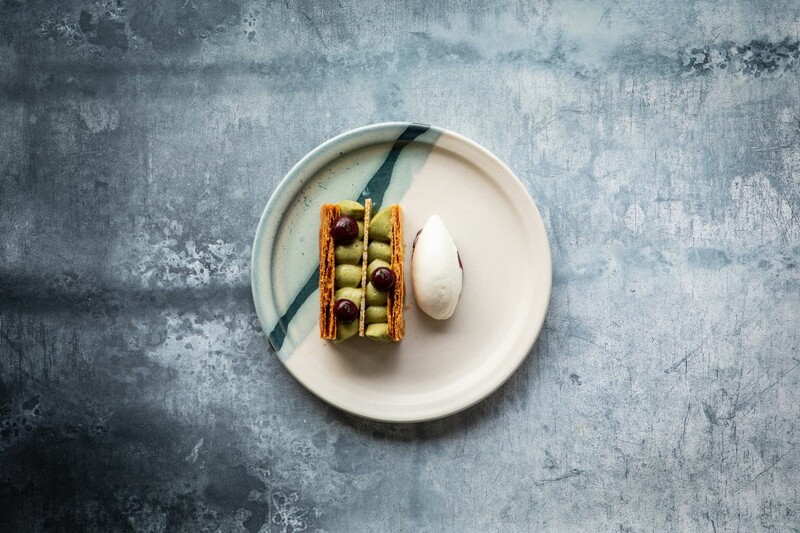
How has recruitment been?
That’s been tough, I have to say, it’s been really tough. But I’ve got all the chefs that I need now. I’m looking for a kitchen porter, looking for permanent front of house. I have one person, a commis with no experience in African food — white, Sevenoaks, keens as mustard — he makes me feel so excited, because when I interviewed him, he was saying how excited he was learning a cuisine he’s never ever ever [tried]. I asked him do you know what plantain is? [He said] 'I’m really sorry but I don’t. I hope that doesn’t mean I don’t have the job?' I’m, like, 'no, no, it’s fine. The fact that you don’t know about plantain, this excites me because now you’re going to learn about plantain!'
WHEN 6th June 2025
WHERE 1-2 Well Court, Bank Street, Sevenoaks, Kent, TN13 1UN
FOLLOW @shwenshwenbymaria
BOOK shwenshwen.com
This article was originally published on our sister publication's website, codehospitality.co.uk on 12th May 2025.

